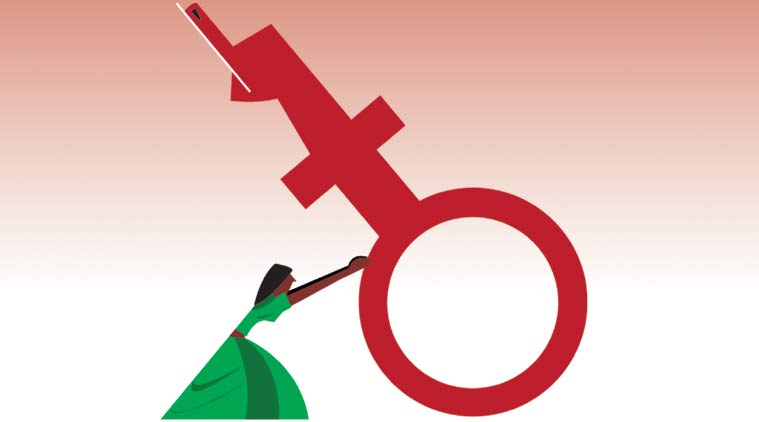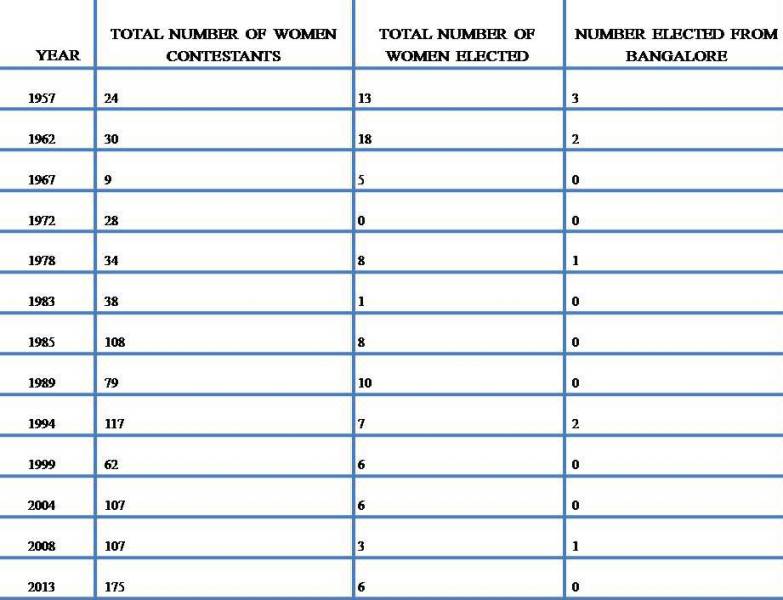Karnataka gears up for elections and readies its forces for battle on the 12th of May. In all its eagerness towards finding its new legislative assembly, it has forgotten to give voice to half of its population. This small matter of forgetfulness has been a habit for not just Karnataka, but most of her siblings spread out across the country as well. India finds itself woefully underrepresented when it comes to the women of the nation. Why then is it astonishing when we find ourselves ranked 148, behind the likes of neighbours Pakistan and Bangladesh on the gender equality index?


Of the candidate lists released by the major political parties in Karnataka for this year’s election, 15 of 218 are women in ruling party Congress’ first list, 3 of 154 out of BJP’s lists and 4 out of 126 fielded by JD(S). This is no new trend in the state, with female candidature suffering immensely in previous elections as well.
In the year 2013, of the 175 who contested, 67 were independent candidates with no backing from any political party. With parties not providing enough tickets to female candidates, they are left with no choice but to forge on alone. What is interesting is that only 6 of these 175 who contested were elected and 1 nominated. Of these, only 1 was an independent candidate as voters tend to support those backed by political parties more.


The Karnataka Panchayat Raj (Amendment) Bill, 2010 reserves 50% seats at the local governance levels for women. In its capital, Bengaluru, the Municipal Council has 50% reservation. Unfortunately, this has not reflected at the level of the legislative assembly with the Women’s Reservation Bill becoming the longest pending bill in the history of Indian Parliament. With less than 12% women elected representatives in Parliament, it is not surprising that male politicians have not felt the need to prioritise this bill. The analysis of affirmative action for women in terms of reservation has yielded positive results in India reflecting on policy choices that better reflect women’s preferences. While men have been seen as prioritizing infrastructural development more, women have been seen to pay more attention to social indicators such as health, education and sanitation. Both need to go hand in hand for all-round development for which both male and female elected representatives are crucial.
Many argue that passing the Women’s Reservation Bill would be mere tokenism with women merely being a front to the decisions being made by their husbands, fathers or brothers. However, there has to be a start somewhere, opportunities need to be created for women to voice their opinions. There is a need for a feminization of political spaces, and while this involves women taking up more seats in Parliament, it also involves men making space for these women in their midst.
Centre for Social Research, an active part of the National Alliance for the Women’s Reservation Bill, whole heartedly supports the passage of this bill. This 1600 member strong alliance, however, is not strong enough. It needs your support and backing to make this demand an uproar that reaches the ears of political parties sated with the dismal state of affairs that suits their patriarchal political functioning. This year, let things be different. This year, let’s not fall prey to false promises by political parties. This year, let’s hold our ruling parties accountable when they come to power.
This year, let’s make it count. Join us in demanding the passage of the Women’s Reservation Bill and sign the petition here–
Sources-
First Post
First Post
Economic Times
Bengaluru Citizen Matters
News Minute




